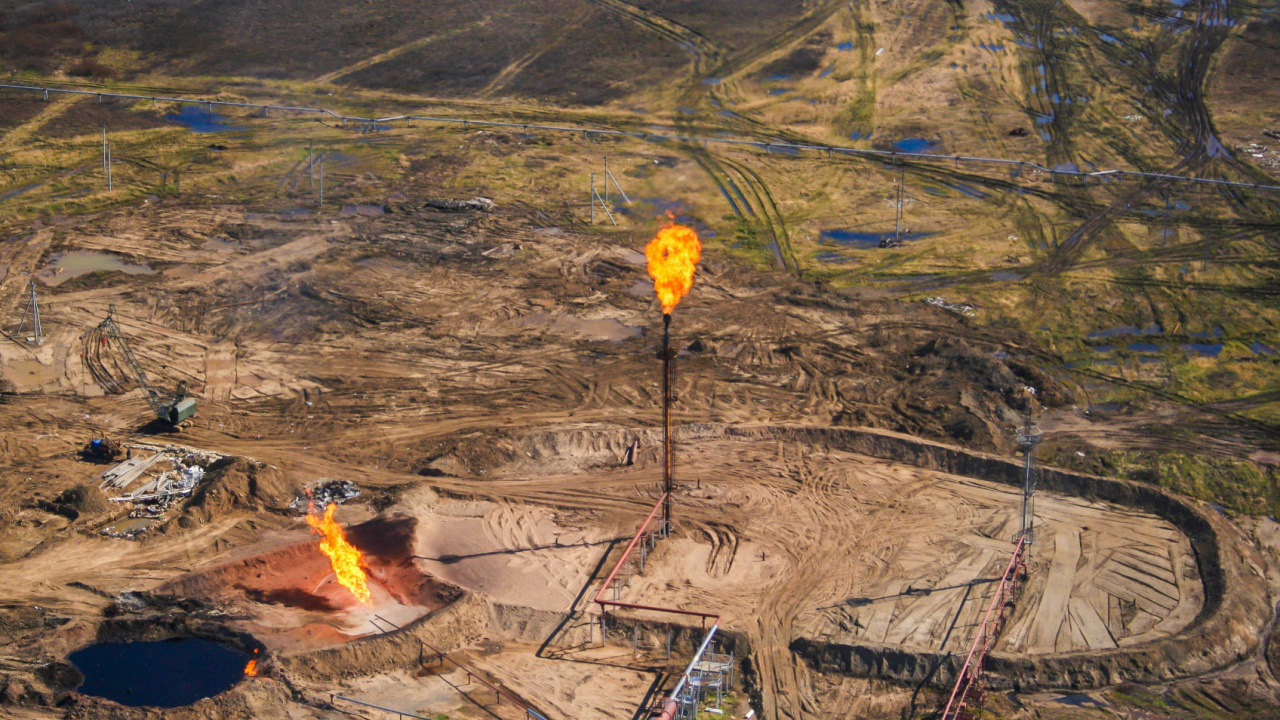[ad_1]

Farms mining cryptocurrency at oil wells in Russia account for 85 megawatts (MW) of energy capacity, experts have estimated. Investors are considering projects for another 200 MW despite constraints stemming from Western sanctions, a report reveals.
Annual Income From Crypto Mining With Associated Gas in Russia to Exceed One Billion Rubles
Data centers mining cryptocurrencies in Russia’s oil fields have a combined power rating of 85 megawatts, which is 23% of the market, according to analysts at Vygon Consulting, an independent consultancy working on the development of the Russian fuel and energy complex.
These crypto farms are supplied with electricity generated by small power plants burning associated petroleum gas (APG), a by-product of the extraction of black gold, that oil companies are required to dispose of. While it costs them almost nothing, they can sell it to miners.
Russian oil producers use around 17 billion cubic meters of APG annually to power facilities at drilling sites. Researchers say cryptocurrency mining accounts for 279 million cubic meters of consumption at the moment, the Russian business daily Kommersant reported, quoting the study conducted by Vygon Consulting.
In July alone, the earnings of APG miners amounted to 400 million rubles (approx. $6.6 million), calculated at a monthly average exchange rate of $20,000 per 1 BTC. Their projected annual revenue for July 2022 – July 2023 at that bitcoin price is 4.8 billion rubles (close to $79 million) and the annual income for a six-year period could reach 1.16 billion rubles ($19 million).
APG Coin Minting Expected to Grow Although Sanctions May Impede Expansion
According to the analysts, the APG mining industry could potentially see multifold growth. If 1.6% of the associated gas, which is currently flared, was used for mining, then the annual income of the miners involved would double to 2.5 billion rubles. And if a third of all flared APG is dedicated to mining, the sector could increase in size by 25 times and expect revenue of up to 30 billion rubles a year.
At the same time, Russia’s mining businesses are facing challenges due to sanctions imposed over the conflict in Ukraine. The EU has limited transactions with crypto wallets of Russian users and some international crypto exchanges restrict Russians’ access to their platforms. Vygon Consulting says that a possible way out is to register a mining entity in another country.
That’s not always a workable solution as the case with Bitriver shows. The Swiss-registered company, which is a major operator of mining data centers in the Russian Federation, was sanctioned by the U.S. Department of the Treasury in April, amid concerns that Moscow may use the minting of digital coins to monetize its energy resources.
In June, Russian crypto media reported that Bitriver has signed a memorandum of cooperation with Gazprom Neft, the oil production arm of Russia’s energy giant Gazprom, to utilize electricity generated from associated gas at its wells. Vygon Consulting’s experts insist such projects carry no risks for oil companies.
Gazprom Neft began launching pilot projects to establish data centers powered with APG in 2019 and now has computing infrastructure operating at its enterprises in three Russian regions. The company emphasized it does not engage with digital currencies directly but provides excess energy to the installations run by partners that it works with.
Importing computing equipment required for crypto mining is another problem for Russian companies facing international restrictions, the report notes. The path “has become longer legally and logistically,” says Roman Zabuga, co-owner of BWC UG, another leading mining operator who puts the current installed capacity of APG farms at 30 – 40 MW. Nevertheless, he believes that investors plan to realize large-scale new projects with a combined capacity of 200 MW in the future.
Do you think crypto mining on associated gas will continue to grow in Russia? Share your thoughts on the subject in the comments section below.
Image Credits: Shutterstock, Pixabay, Wiki Commons, Solodov Aleksei
Disclaimer: This article is for informational purposes only. It is not a direct offer or solicitation of an offer to buy or sell, or a recommendation or endorsement of any products, services, or companies. Bitcoin.com does not provide investment, tax, legal, or accounting advice. Neither the company nor the author is responsible, directly or indirectly, for any damage or loss caused or alleged to be caused by or in connection with the use of or reliance on any content, goods or services mentioned in this article.
[ad_2]
Source link



